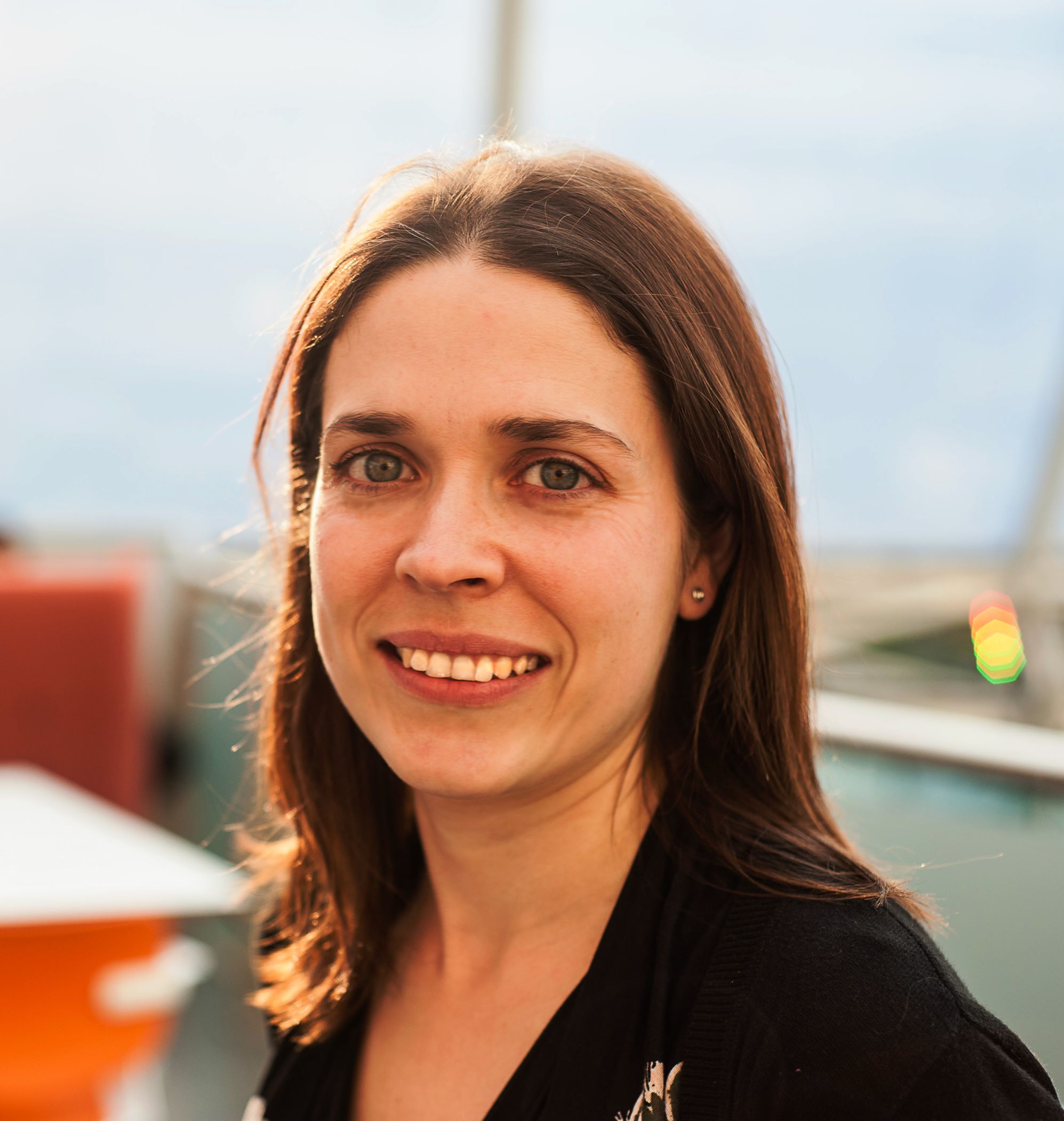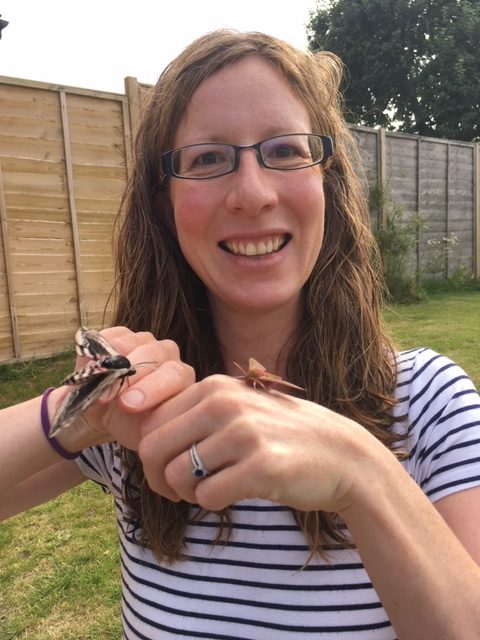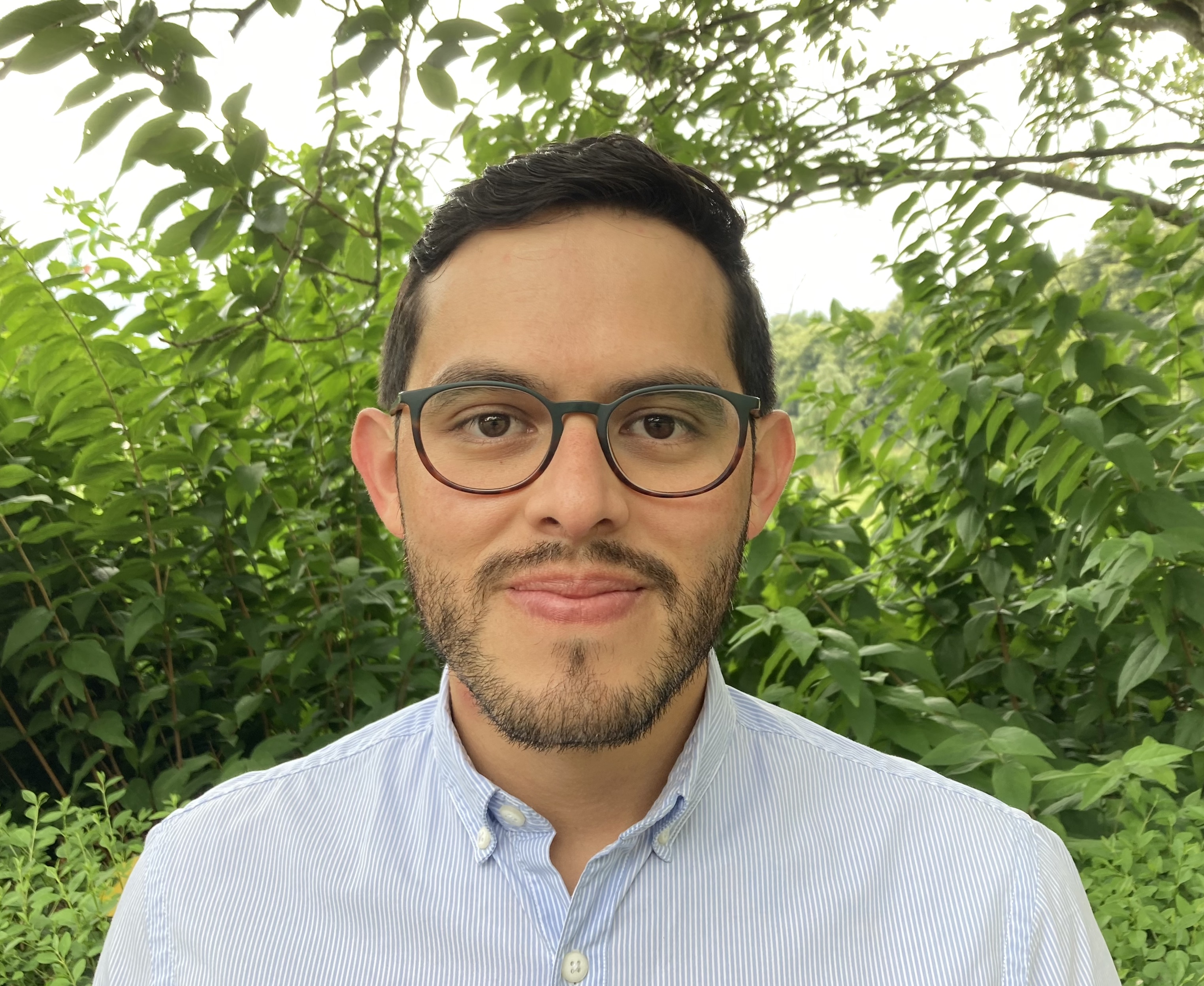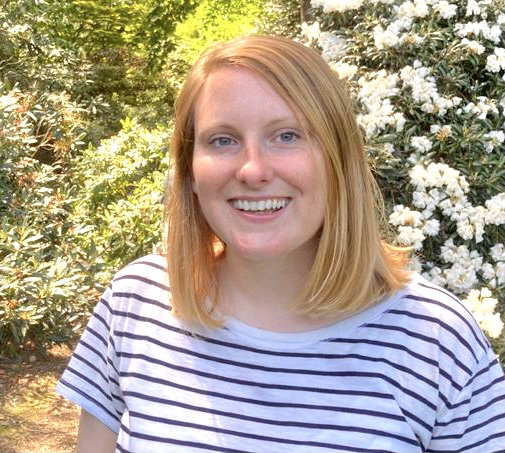
Lindsey Collins
Profile
Lindsey is an ESRC Postdoctoral Fellow in the Centre for Applied Dementia Studies, University of Bradford. Her fellowship is aligned with the Wellbeing, health and communities pathway.
Lindsey completed her BSc in Human Communication: Speech and Language Therapy at De Montfort University before working as a Speech and Language Therapist for the NHS, where she developed a clinical specialism in dementia. Lindsey went on to complete a MSc in Dementia Studies at the University of Bradford.
In 2014, Lindsey was awarded a Clinical and Healthcare Professionals Doctoral Training Fellowship from the Alzheimer’s Society. The title of Lindsey’s PhD thesis was: Understanding the eating and drinking experiences of people living with dementia and dysphagia (eating, drinking and swallowing difficulties) in care homes: a qualitative study of the multiple perspectives of the person, their family, care home staff and Speech and Language Therapists.
During her fellowship, Lindsey will further disseminate the findings from her PhD to a variety of audiences and in various formats; form and collaborate with a stakeholder panel to develop a bid for further research funding to continue research in the field of dementia and dysphagia; and engage in opportunities to develop the knowledge and skills required to be a future clinical academic leader.
Research interests: dementia, dysphagia, human communication, person-centred care, care staff education
Email: l.collins3@bradford.ac.uk

Adam Ferhani
Profile
Dr Adam Ferhani joined the Department of Politics and International Relations as an ESRC Postdoctoral Fellow in October 2021. Prior to this, Adam completed his PhD in the Department (2021), and MA in Social Research in the Sheffield Methods Institute (2017). Both of these were supported by and ESRC 1+3 Studentship. He also holds and MA in International Relations from the University of York, and a BA in International Relations from the University of Leicester.
Dr Ferhani’s research focuses on the politics of security, with particular interest in health security, and is broadly situated in the fields of critical security studies, International Political Sociology, and Border Studies. He is especially interested in the interplay between health security and border security.
For his doctoral research, Adam undertook extended periods of fieldwork, and this PhD thesis contributes the first in-depth empirical analysis of routine health security practice at the UK border. The thesis illuminates the mechanics of prophylactic procedures in place continually at the UK’s border, rather than emergent measures in response to public health emergencies. His forthcoming article in Security Dialogue ‘‘‘Yeah, this one will be a good one’’, or Tacit Knowledge, Prophylaxis, and the Border: Exploring Everyday Health Security Decisionmaking’, builds on and extends his doctoral research and attends to the modes of knowledge mobilised by frontline actors making routine health security decisions.
Email: a.j.ferhani@sheffield.ac.uk

Sarah Knight
Profile

Andrea Peinhopf
Profile
Andrea Peinhopf is an ESRC Postdoctoral Fellow in the Department of Politics at the University of York. Prior to this, Andrea completed an ESRC-funded PhD in Sociology and Anthropology at the UCL School of Slavonic and East European Studies. She also holds an MSc in Political Theory from the London School of Economics and a Mag.phil. in Philosophy from the University of Vienna.
Andrea is an interdisciplinary peace and conflict scholar with a regional specialisation in the post-Soviet Caucasus. Her fieldwork-intensive research explores the long-lasting and complex effects of war, mass displacement and international isolation on people’s social relations and identities in the context of unresolved conflict and contested statehood. For her PhD thesis, she conducted extensive ethnographic field research among ordinary residents of
Abkhazia, one of Georgia’s breakaway regions, providing unique insights into the lives of those who are often collectively denounced as perpetrators and the complex forms of victimhood that have come to shape their sense of belonging. Parts of her thesis have been published in Ethnopolitics, Nationalities Papers, the Palgrave Encyclopedia of Peace and Conflict Studies and The Global Encyclopaedia of Informality. In 2018, Andrea was a recipient of the Best Doctoral Paper Award by the Association for the Study of Nationalities (ASN). More recently, her article ‘The Curse of Displacement: Local Narratives of Forced Expulsion and the Appropriation of Abandoned Property in Abkhazia’ was awarded an honourable mention from the BASEES Women’s Forum.
As an ESRC Postdoctoral Fellow, Andrea is currently working towards turning her PhD thesis into a monograph. The book aims to reconceptualize post-war intimacy in a way that accounts for both inter- and intra-ethnic divisions engendered by war- and post-war experiences. It will place greater emphasis on the role of international isolation and further explore the phenomena of ‘ethnic claustrophobia’ and intra-ethnic mistrust as the flipside of ethnic intimacy, focusing on the ways in which international isolation not only fosters a so- called ‘siege mentality’ but also a recurring desire to ‘take a break’ and ‘escape’. To this end, Andrea will conduct additional field research both in the Caucasus and among peacebuilding practitioners in the UK.
Beyond the book, Andrea is currently working on several funding proposals for a new project on how ethnically mixed families navigate unresolved conflict. She is also planning a workshop on everyday peace in the Caucasus that will bring together academics, policy- makers and peacebuilding practitioners to discuss the role that ordinary people can play in more formalised peacebuilding efforts.
Research interests: political violence, de facto states, everyday ethnicity, nationalism, everyday peace, complex victimhood, political ethnography
Twitter: @AndreaPeinhopf

Euan Raffle
Profile
I completed my PhD in May 2020, which was entitled: Security, Emancipation and Narcotics- State Vigilantism and the War on Drugs in Southeast Asia. The thesis examined the resurgence of the discourses and techniques of the war on drugs by looking at Thaksin Shinawatra’s anti-drugs drive in Thailand in 2003, and Duterte’s comparable campaign in the Philippines following his election in 2016. The thesis argued that the format of state violence in both drugs wars, which led to thousands of deaths, defied existing models of state killing and vigilante violence. The thesis proposed ‘state vigilantism’ as an alternative model of extrajudicial killings, and the concept has been expounded in an article published in the International Journal of Drug Policy. Further, the thesis also examined the role of civil society in contesting the drug war, through processes of offering emancipatory forms of immanent critique. This led onto an interest in exploring how drug policy alternatives are articulated by civil society groups to challenge security led discourses.
Gallagher, A., Raffle, E. and Maulana, Z. 2019. Does the Philippines’ War on Drugs Amount to Crimes Against Humanity? The Diplomat. [Online]. Available from: https://thediplomat.com/2019/
Email: e.raffle@leeds.ac.uk
Twitter: @Euan_Elffar

Jamie Redman
Profile
Jamie Redman is currently an ESRC post-doctoral fellow at the University of Sheffield. His current research is focused on the history of UK welfare reform and the contemporary delivery of employment services. Recent articles have appeared in Work, Employment and Society and Critical Social Policy.

Leon Felipe Tellez Contreras
Profile
Leon is an ESRC Postdoctoral Fellow at the Department of Urban Studies and Planning at the University of Sheffield. In 2021, he was awarded a PhD in Geography at the University of Leeds and previously completed an MA in Social Anthropology (CIESAS, Mexico) and a BA in Sociology (UNAM, Mexico).
Leon has been consolidating a research agenda around the study of marginalised urban communities in Mexico City. His work has primarily focused on the social, cultural, and affective dimensions of gentrification and displacement, particularly on the lived experiences of these communities when engaging with and challenging such urban processes. Leon has been a member of the international research exchange networks Contested Cities and Contested Territories funded by the European Commission. His work within the field of urban studies has been published in different academic outlets in Latin America.
Leon’s most recent piece of research is his PhD thesis, titled “Popular infrastructural politics: Trader organisation and public markets in Mexico City.” It builds an understanding of the political and infrastructural practices of market trader communities and provides a new conceptual opening for the study of public infrastructure provision, maintenance, and transformation. This research serves as the basis for Leon’s ESRC-funded project, whose core activities are to disseminate key findings of his PhD research and develop a knowledge exchange network with marketplace stakeholders at an international level. These activities draw on Leon’s interest in recognising and valuing the contributions of marginalised urban groups to creating more socially just cities.
Leon’s research interests are situated at the intersection of critical geography and critical urban studies and revolve around grassroots politics, urban politics, infrastructures, social justice, and political ethnography.
Email: l.f.tellezcontreras@sheffield.ac.uk
Twitter: @LeonFeTeCo

Harriet Thew
Profile
Harriet is an ESRC WRDTP Postdoctoral Fellow in the School of Earth and Environment at the University of Leeds. Her fellowship, entitled: “Youth Participation and Climate Change Education: Empowering the next generation to respond to the climate crisis” will further disseminate interdisciplinary findings from her PhD, (completed November 2020) and her UKRI “COP26” Fellowship (completed November 2021).
Harriet’s doctoral thesis ethnographically explored the role of youth in the United Nations Climate Change negotiations. Taking a first step to bridge the interdisciplinary divide between global environmental governance and youth studies, she offered substantial insights to both fields, including publishing two chapters of her thesis in high-profile journals.
Harriet’s thesis was recognised by Leeds Doctoral College as an outstanding example of research excellence and she also received the Piers Sellers prize for exceptional PhD research (2020) from the Priestley International Centre for Climate (Priestley Centre), a Publication Prize from the School of Earth and Environment (2020) and was selected as Faculty of Environment Postgraduate Researcher of the Year (2019).
Harriet subsequently secured a prestigious UKRI-funded “COP26” Fellowship to advise policy makers on youth participation in the lead up to the ‘COP26” United Nations Climate Change negotiations and to examine CCE in UK Higher Education Institutions, to ascertain whether current curricula provide graduates with the skills necessary to respond to the climate crisis. This led to several outputs including publications, COP26 side events and capacity-building workshops with youth groups from the UK and South Africa.
During her ESRC postdoctoral fellowship, Harriet will disseminate more of her research findings through academic publications, conduct a research visit to the Edinburgh Centre for Carbon Innovation, further developing her expertise in CCE with world leading researchers and deepen her policy engagement with UK and International policy makers, through the COP26 Universities Working Group on Education and Skills.
This work will consolidate and build upon 14 years’ experience in Climate Change Education (CCE) and youth empowerment from local to international levels, including project and programme management roles with the UK Environment Agency, Climate Change Schools Project and World Association of Girl Guides and Girl Scouts.
Harriet will also be developing future research projects and welcomes opportunities for collaboration, particularly relating to the following research interests:
- Climate Change Education (CCE)
- Youth participation in climate change governance
- Children and young people’s lived experiences of climate change
- Environmental and social justice
Email: h.thew@leeds.ac.uk
Twitter: @HarrietThew







